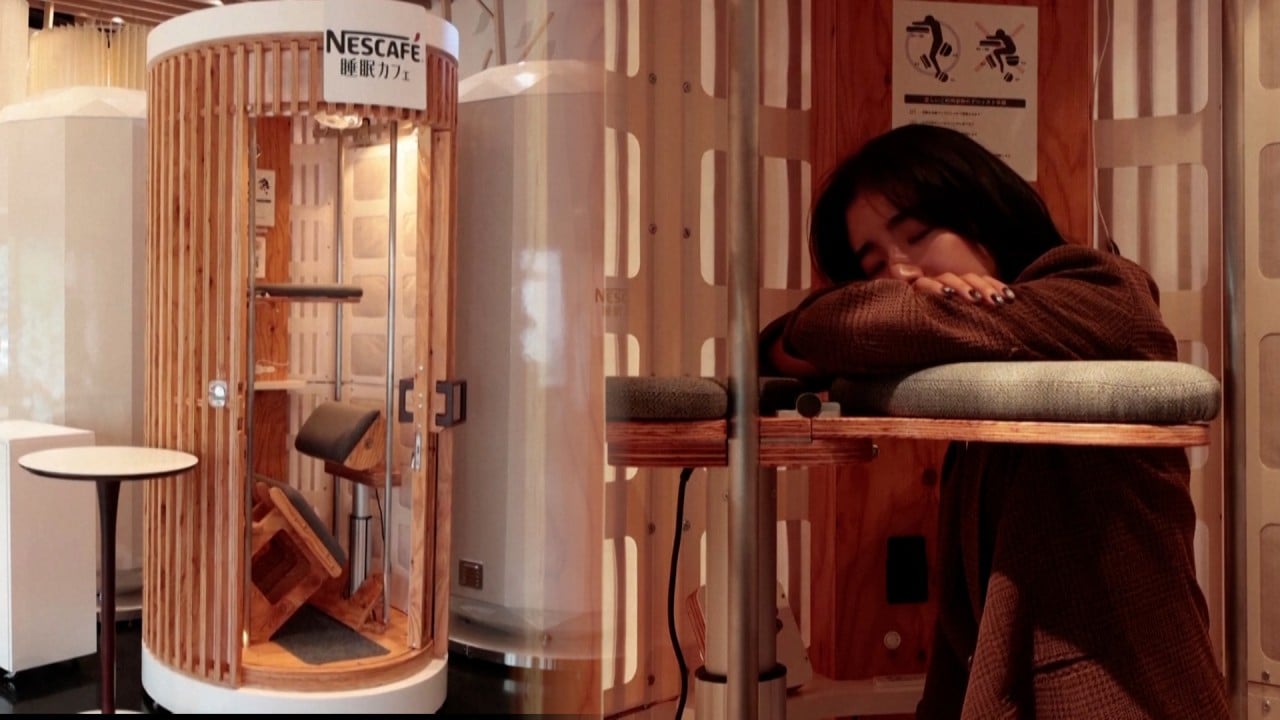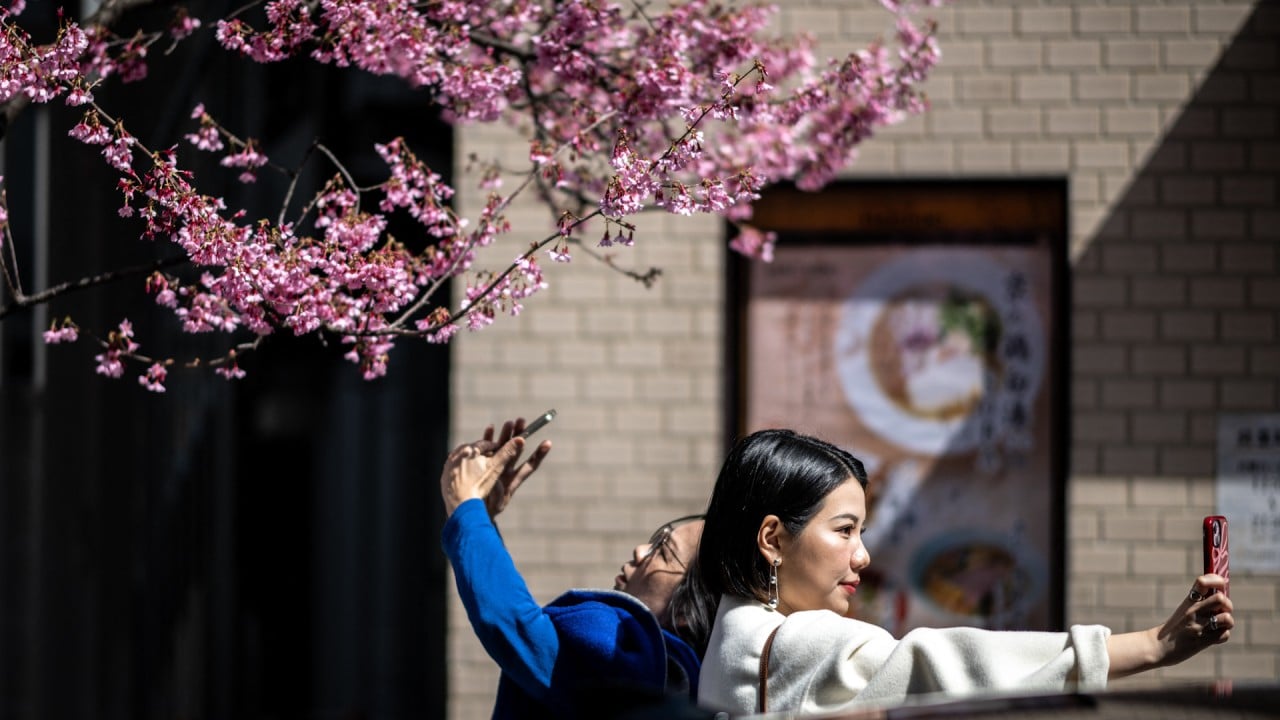
‘A huge mistake’: Japan’s sleeplessness crisis poses threat to society, warns leading expert
- One of Japan’s leading sleep experts is calling for comprehensive education to combat the country’s sleep deprivation crisis
- Ministry of Health study highlights severe lack of sleep among Japanese, raising alarms over potential societal impacts
Dr Masashi Yanagisawa, director of the International Institute for Integrative Sleep Medicine at the University of Tsukuba, said a report released by the Ministry of Health in February that recommended that the public gets more bed rest was a good start but needs to be followed up with a “comprehensive” education programme to avoid the nation becoming even more sleep-deprived.
Concern over the amount of sleep that Japanese people get was triggered in part by a study conducted in 2021 by the Organization for Economic Cooperation and Development that indicated Japanese people sleep an average of seven hours and 22 minutes a night, the least of the 33 nations included in the study.
Japan’s health ministry statistics from 2019 indicate that 37.5 per cent of men and 40.6 per cent of women get less than six hours of sleep a night on average.

A separate study, carried out by the University of Tokyo and released in March, concluded that sixth-grade elementary pupils sleep an average of 7.9 hours a night, with that falling to 7.1 hours for pupils in the final year of junior high school and just 6.5 hours for final-year high-school students.
Those figures fall significantly below the minimum suggested hours of sleep required for good health.
The ministry is recommending that adults aim to sleep a minimum of six hours a day, while infants up to the age of two should get between 11 and 14 hours every day, elementary school children up to 12 hours and junior and senior high pupils between eight and 10 hours every night.
As well as calling for people to sleep more, the ministry’s 12 “sleep guidelines” also recommend that they get better quality sleep as rest “contributes to preventing lifestyle-related diseases”.
“The fundamental problem is one of education,” Yanagisawa told This Week in Asia. “Too many people wish there were 28 hours in every day so they could put in long hours at work or school or university, then they would come home and have their own leisure time – and only after that fit in some time to sleep.”
“If we described this in financial terms, it is as if they see sleep as ‘discretionary funds’ that are less important – but that is a huge mistake,” he said. “People need to consider sleep to be their home loan, that they need to make it the priority every day and get enough sleep.
“People need to set aside the seven or eight hours that they need and then fit everything else – work, studies, leisure – around that time,” he added.
The consequences of not getting adequate sleep, according to Yanagisawa, are reduced mental and physical health and poorer performance in the workplace, school or university. And he is alarmed at the results of the ministry’s study.
The problem, experts believe, is not that people do not want to sleep but that social pressures often make it difficult to relax.
“For years, Japanese people have been told to study harder and work longer hours,” Yanagisawa said. “Diligence is considered an important attribute and there is constant pressure for people to do more.
“The pressure also comes from inside us, with working long hours linked to self-esteem,” he said. “Japanese people can be very self-critical in a culture where a positive attitude towards work and diligence is seen as a virtue.
“Basically, someone having a sleep is considered lazy.”
Yanagisawa said such attitudes were already ingrained when children were still in elementary school, meaning that pupils were “sacrificing themselves” from a very young age.
“I would say that the vast majority of Japanese school pupils are sleep-deprived and, because that becomes their philosophy, that becomes the norm for the rest of their lives,” he said.
How serious is the ‘flesh eating’ infection outbreak spreading across Japan?
Izumi Tsuji, a professor of the sociology of culture at Tokyo’s Chuo University, says that as a student he got “maybe five or six hours of sleep a night” as he studied, listened to the radio or watched television – and points out that with all-pervasive social media, the distractions from sleep are even more powerful for children today.
“Students are under pressure to study at night but, for my generation, the radio was always on and when the studies were done, I wanted to do my own thing, so I went to bed later every day,” he admitted. “And, of course, I was always sleepy the next day at school.”
Things have not got better in adulthood, he said, lending credence to the suggestion that the short amount of time Japanese spend sleeping is imprinted on their attitudes at a young age.
“I would like to sleep eight hours, but I never do,” he said. “There are simply too many tasks that need to be done, with work or family, and then I like to enjoy my own time. I have a habit of using lots of different media – a computer, mobile phone and so on – so I am never truly away from work. I go to bed around midnight or 1am every night.”
Yanagisawa shakes his head.
“There are clear links between a lack of sleep and a greater risk of depression, a number of cancers, cardiovascular complaints, damage to the immune system and infections,” Yanagisawa said.
“The consequences of that can be an inability to control emotions and moods, meaning people become angry, irritated, stressed and unable to control themselves.”
Ironically, less sleep is also impacting people’s abilities in the workplace, studies show, with tired employees being less efficient and more likely to make mistakes, causing companies problems and financial losses, Yanagisawa added.
Other studies on children suggest that a lack of sleep can lead to a smaller hippocampus, which can impact short-term memory and has been linked in some studies to Alzheimer’s disease.
“Not getting enough sleep can be devastatingly detrimental in young people and can leave them effectively handicapped for the rest of their lives.
“I think the government is right to be worried about this problem because I am too,” Yanagisawa said.
“In my opinion, a fundamental change in people’s mindset is absolutely necessary,” he said. “People need to set aside eight hours every day for sleep as a core time that cannot be touched. Then they need to arrange everything else – work, family, pleasure – around that.”



